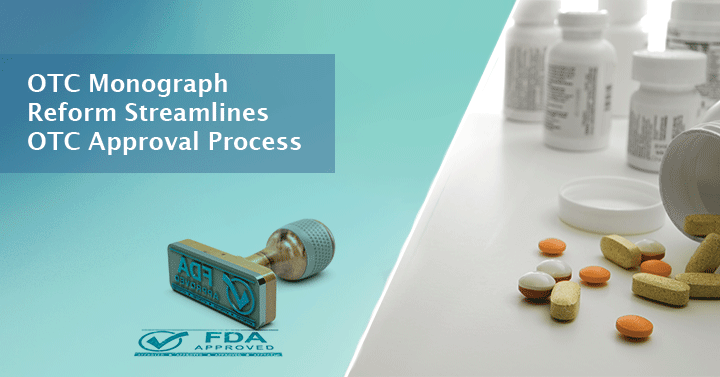After years of the OTC industry and the Consumer Healthcare Products Association working with the FDA to pass long-overdue OTC monograph reform and regulatory modernization, long-sought-after reform is now a reality thanks to the CARES (Coronavirus Aid, Relief, and Economic Security) Act. The act, which was passed by the U.S. Congress and signed into law by President Donald Trump on March 27, 2020, provides more than $110 million over five years for the FDA to significantly increase capacity and expertise in the Office of Nonprescription Drug Products.
Some experts estimate that the FDA’s capacity to work on OTC monograph ingredients and drug reviews will triple over the next five years. The modernized process will allow the agency to be more responsive and nimble when it comes to OTC drug and monograph reviews because the new system allows for an administrative order process run directly from the Center for Drug Evaluation and Research (CDER). This differs from the previously used “notice and comment rulemaking” system, which was a lengthy process that often led to regulatory delays, gridlock, and about 20% of OTC monographs languishing as “unfinished.”
The continuing coronavirus emergency will certainly consume many of the FDA’s resources for the short term but, as we start to see shelter-in-place orders lifted and a gradual reopening of the country, this new regulatory system is a welcome change for the OTC industry that should now have an easier time to gain approval for new innovations and OTC ingredients. Line extensions of existing OTC medications could be more plentiful, as the process for approval will be more efficient. The new process includes provisions of market exclusivity for a period of 18 months for sponsors applying for OTC drugs with new active ingredients or where the sponsor has conducted new human studies.
Text from the CARES Act on the OTC Drug Review Process follows:
“FDA may issue an administrative order determining a specific OTC drug, class of drugs, or combination is generally regarded as safe and effective and not subject to the new drug application process. The FDA may also use the administrative order process to (1) determine a drug, class of drugs, or combination pose an imminent hazard to the public health; or (2) require labeling changes to mitigate a significant or unreasonable risk of a serious adverse event associated with use of the drug.
The bill provides for market exclusivity under certain circumstances. For drugs determined to be generally regarded as safe and effective pursuant to an administrative order requested by a sponsor (rather than initiated by the FDA), the requestor is granted 18 months of market exclusivity. This market exclusivity applies to an OTC drug with a new active ingredient or where the requestor conducted new human studies to get approval.”
At a time where telemedicine visits are the norm and patients increasingly rely on consumer medicines, this reform will allow for more medications to be brought to consumers and, possibly, increase Rx-to-OTC switch activity. In addition to fostering more switch activity, it is likely that existing OTCs will see innovations like added ingredients or line extensions.
In 2020, the FDA has approved four new Rx-to-OTC switch drugs, while news of these approvals and launches has largely been drowned out by COVID-19. This number of new approvals represents a strong uptick after a dearth of new switch approvals recently. The recently approved switch drugs include:
- Voltaren Gel (GlaxoSmithKline) topical NSAID analgesic
- Pataday Once Daily and Pataday Twice Daily (Alcon) allergy eye drops
- Lumify (Bausch & Lomb) eye drops for redness reduction
In addition to these, several other drugs are candidates to switch shortly in categories such as oral contraceptives, erectile dysfunction, smoking cessation, and sleeping aids. Kline’s Rx-to-OTC Switch Forecasts study will provide a comprehensive, objective assessment of the Rx-to-OTC switch landscape including forecasts of switches in the United States in existing OTC categories and projections for new OTC categories. The study provides a broad assessment of “switchable” OTC categories, a specific analysis and forecasts for the most-likely switch categories and drugs, and an analysis of regulatory and retail paradigm shifts and implications for future switches. In addition to a detailed written report, this service provides Kline’s interactive and proprietary FutureView Forecasting Model to help users predict sales of new switches. Kline is currently accepting charter subscriptions to this study, which allows for input on the list of therapeutic classes and drugs to be profiled. For more details, contact us.

